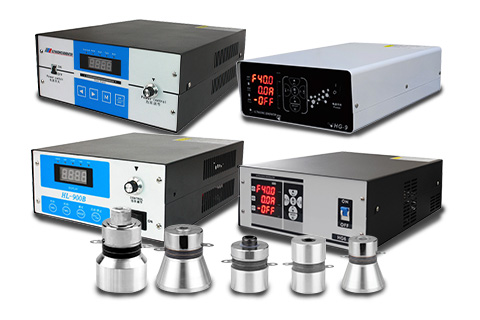Ultrasonic Cleaning in the Automotive Industry: A Complete Guide
Introduction
In the fast-paced world of automotive repair, maintenance, and manufacturing, cleanliness is more than just a cosmetic concern—it’s a performance issue. Grease, carbon buildup, and metal shavings can significantly impair engine performance, braking systems, and fuel efficiency. That’s where ultrasonic cleaning has revolutionized the game.
In this complete guide, we’ll explore how ultrasonic cleaning in the automotive industry is used to clean intricate parts with incredible precision. Whether you are a workshop owner, an auto parts supplier, or an OEM manufacturer, this article will help you understand the benefits, applications, and how to choose the right ultrasonic cleaner for automotive use.
What is Ultrasonic Cleaning?
Ultrasonic cleaning is a method that uses high-frequency sound waves (typically between 20–40 kHz) to agitate a liquid cleaning solution. This agitation creates microscopic bubbles in a process called cavitation. When these bubbles collapse, they release powerful energy that removes dirt, oil, carbon deposits, and other contaminants from surfaces—even from hard-to-reach corners of complex automotive parts.
Unlike traditional cleaning methods, ultrasonic cleaning does not rely on harsh brushing, scrubbing, or high-pressure jets, making it ideal for sensitive or intricate automotive components.
Benefits of Ultrasonic Cleaning in Automotive Applications
✅ Deep Cleaning of Complex Geometries
Ultrasonic cleaners can reach deep holes, blind spots, and internal channels of engine blocks, carburetors, and fuel injectors that traditional methods cannot.
✅ Time and Labor Savings
Manual scrubbing and soaking can take hours. With ultrasonic cleaning, a 10–20 minute cycle can achieve the same or better results, with minimal labor.
✅ Eco-Friendly Process
Using biodegradable cleaning solutions reduces the environmental impact compared to solvent-based degreasers.
✅ Non-Destructive Cleaning
There’s no abrasion or risk of damaging sensitive components like aluminum housings or delicate injector needles.
✅ Consistent Results
Unlike manual cleaning, ultrasonic cleaning offers repeatable and uniform cleaning quality—ideal for mass automotive parts cleaning.
Common Automotive Parts Cleaned by Ultrasonic Machines
🔧 Engine Components
Cylinder heads
Pistons
Valve bodies
Rocker arms
🔧 Fuel System Parts
Carburetors
Fuel injectors
Fuel pumps
🔧 Brake and Suspension Systems
Brake calipers
ABS sensors
Master cylinders
🔧 Transmission Parts
Valve bodies
Gears
Solenoids
🔧 Cooling and Lubrication Systems
Oil coolers
Radiator parts
Turbochargers
Tip: When dealing with aluminum or other sensitive alloys, make sure the cleaning solution is aluminum-safe and the ultrasonic frequency is appropriate (often above 40kHz).
How to Use an Ultrasonic Cleaner for Automotive Parts
1. Pre-clean Heavily Soiled Parts
Use a quick rinse or brush-off for thick grease and grime before placing parts in the tank.
2. Choose the Right Cleaning Solution
Use a degreasing ultrasonic cleaning solution for oily parts.
Use an acidic or descaling solution (safely diluted) for rust removal.
Make sure the solution is compatible with the part material.
3. Set Proper Temperature and Time
Temperature: 50–70°C (122–158°F)
Time: 10–30 minutes depending on the contamination level
4. Use Baskets or Racks
Never place parts directly on the tank’s bottom. Use stainless-steel baskets to avoid transducer damage.
5. Rinse and Dry
After cleaning, rinse with clean water to remove residues, then dry using compressed air or a drying chamber.
Choosing the Right Ultrasonic Cleaner for Automotive Applications
Here’s a quick selection guide:
| Feature | Recommendation |
|---|---|
| Tank Size | 10L–100L depending on part size |
| Ultrasonic Power | 100–1500W for industrial-grade cleaning |
| Frequency | 25–40kHz for carbon, 40kHz+ for delicate parts |
| Heating Function | Essential for removing oil and grease |
| Degas Function | Improves cavitation efficiency |
| Drainage Valve | For easy solution disposal |
| Material | 304 or 316L Stainless Steel |
Looking for bulk cleaning? Use immersion-type ultrasonic transducers that can be mounted in large tanks.
Case Study: Cleaning Carburetors in a Motorcycle Workshop
A motorcycle repair shop in Texas reported a 70% increase in turnaround time after switching to ultrasonic cleaning. Carburetors that once took 2 hours to soak and scrub were fully cleaned in just 15 minutes using a 30L ultrasonic cleaning machine with a heated degreasing solution at 60°C. Customers praised the better engine response after cleaning.
FAQs
❓ Is ultrasonic cleaning safe for aluminum engine parts?
Yes, if you use the correct frequency (above 40kHz) and an aluminum-safe solution.
❓ Can I clean multiple automotive parts at once?
Yes, just ensure they don’t touch each other and are fully submerged in the basket.
❓ How often should I change the cleaning solution?
It depends on usage, but for automotive shops, changing every 1–3 days is common.
❓ Do ultrasonic cleaners remove rust?
Yes, especially when used with descaling or rust-removal solutions. It’s best for surface rust, not deep pitting.
❓ What size cleaner do I need for a carburetor?
A 6L–10L machine is usually sufficient for most small to mid-size carburetors.
Conclusion: Is Ultrasonic Cleaning Worth It for Automotive Professionals?
Absolutely. Whether you’re running a high-volume repair shop, managing a manufacturing line, or restoring vintage cars, ultrasonic cleaning offers speed, precision, and efficiency. It not only enhances part performance but also reduces labor time and chemical waste.
With the right equipment and solution, you can transform your cleaning process and achieve results that outperform traditional methods.
✅ Ready to Upgrade Your Automotive Cleaning Process?
Explore our range of industrial ultrasonic cleaners designed specifically for the automotive industry. From compact bench-top models to large-capacity machines, we support custom solutions, OEM options, and fast delivery.
